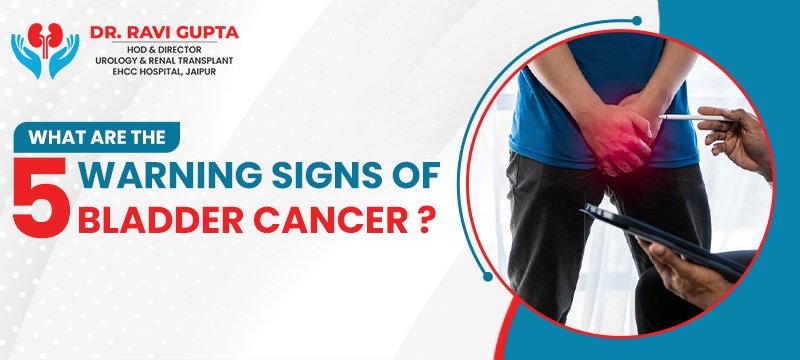
What are the 5 Warning Signs of Bladder Cancer?
Top 5 Warning Signs of Bladder Cancer
What is Bladder Cancer?
Bladder cancer is a type of cancer that begins in the cells lining the bladder, the organ responsible for storing urine. It is a condition often unnoticed in its early stages, making awareness crucial for early detection and effective treatment.
Types of Bladder Cancer
There are primarily two types of bladder cancer: non-muscle invasive bladder cancer (NMIBC) and muscle-invasive bladder cancer (MIBC). NMIBC is confined to the inner layers of the bladder, while MIBC penetrates the deeper muscle layers.
Top 5 Warning Signs of Bladder Cancer
1. Blood in Urine
One of the most common and noticeable signs is hematuria or blood in the urine. It may appear pink, orange, or even dark red. Any unexplained presence of blood in the urine should be promptly evaluated.
2. Changes in Urination
Bladder cancer can cause changes in urination patterns, such as increased frequency, urgency, or pain during urination. These changes, especially if persistent, warrant medical attention.
3. Pelvic Pain
Persistent pelvic pain can be an indicator of advanced bladder cancer. If you experience ongoing discomfort in the pelvic region, consult a healthcare professional for a thorough examination.
4. Back or Abdominal Pain
Bladder cancer can cause pain in the lower back or abdomen. This pain may be persistent and unrelated to other known conditions, signaling a need for further investigation.
5. Fatigue and Weight Loss
In some cases, bladder cancer can lead to fatigue and unexplained weight loss. These symptoms may accompany more advanced stages of the disease and should not be ignored.
Risk Factors of Bladder Cancer
Understanding the risk factors associated with bladder cancer is crucial for prevention and early detection. Some common risk factors include smoking, exposure to certain chemicals, age, gender, and a history of chronic bladder inflammation.
Prevention & Management
While complete prevention may not be possible, adopting a healthy lifestyle can lower the risk of bladder cancer. Quitting smoking, staying hydrated, and maintaining a balanced diet are essential. Regular check-ups and screenings also contribute to early detection and effective management.
Conclusion
Bladder cancer, though a serious condition, can be managed effectively with early detection and proper treatment. Being aware of the warning signs and addressing them promptly significantly improves the chances of a positive outcome.
FAQs
What are the symptoms of bladder cancer?
The symptoms include blood in the urine, changes in urination patterns, pelvic or abdominal pain, and fatigue with weight loss.
How many types of bladder cancer are there?
There are two main types: non-muscle invasive bladder cancer (NMIBC) and muscle-invasive bladder cancer (MIBC).
Can bladder cancer be cured?
With early detection and proper treatment, bladder cancer can be effectively treated. However, the outcome depends on various factors, including the stage at which it is diagnosed.
What are the causes of bladder cancer?
Risk factors include smoking, exposure to certain chemicals, age, gender, and a history of chronic bladder inflammation.
What are the 5 warning signs of bladder cancer?
The warning signs include blood in the urine, changes in urination patterns, pelvic pain, back or abdominal pain, and fatigue with weight loss.
If you have concerns about bladder health or want to explore more about preventive measures, consult with the best urologist in Jaipur.